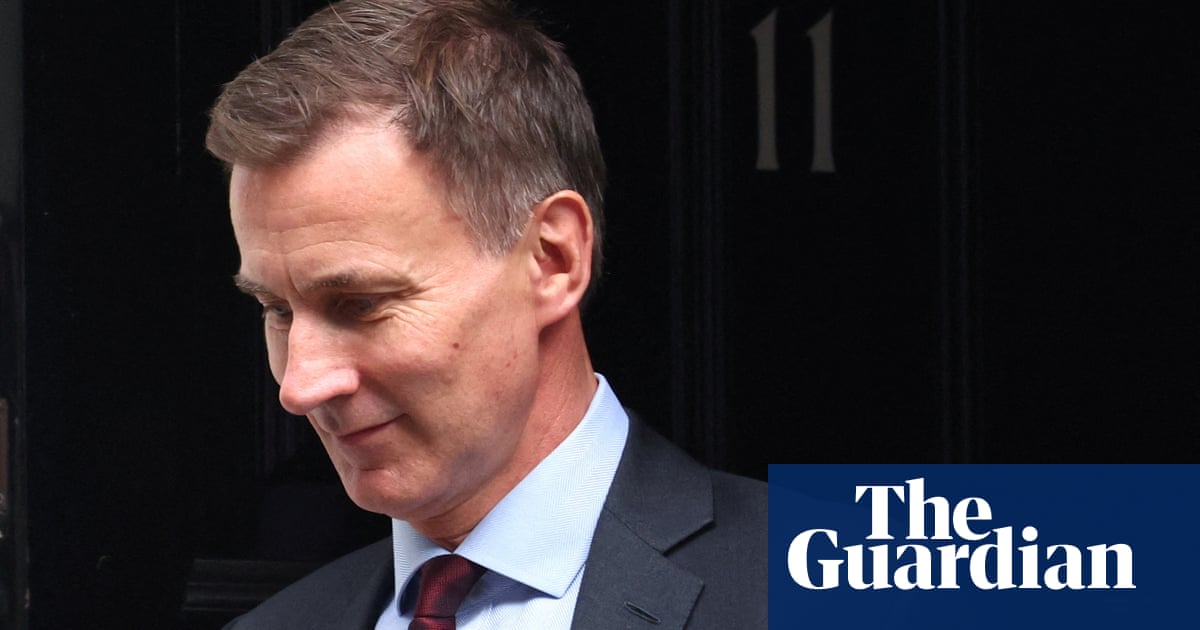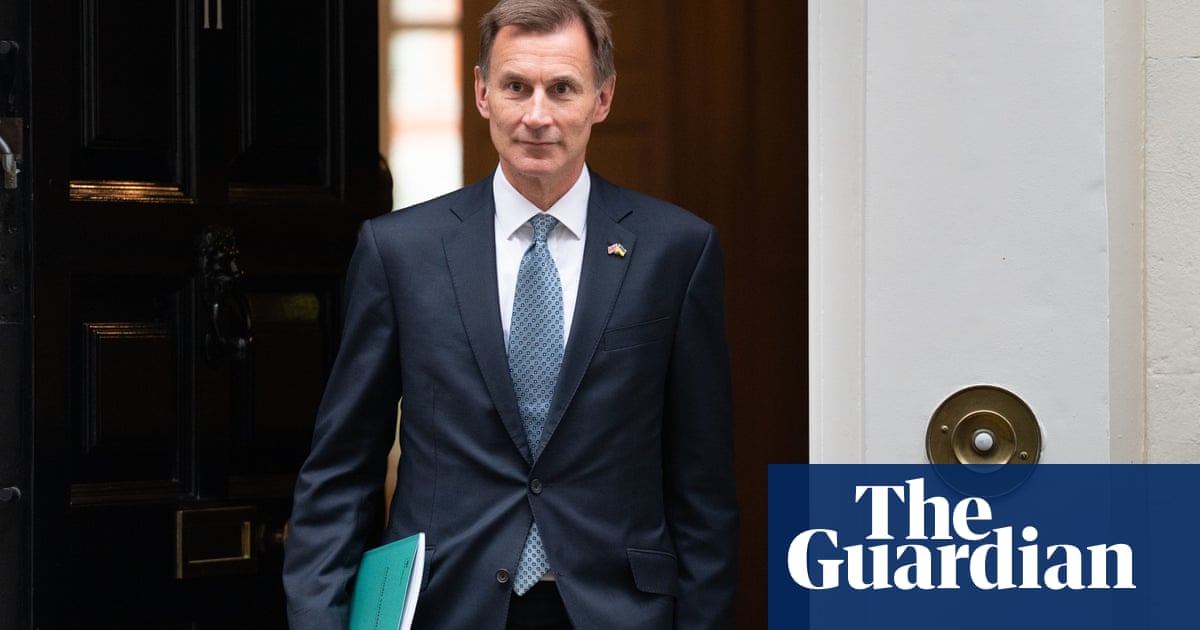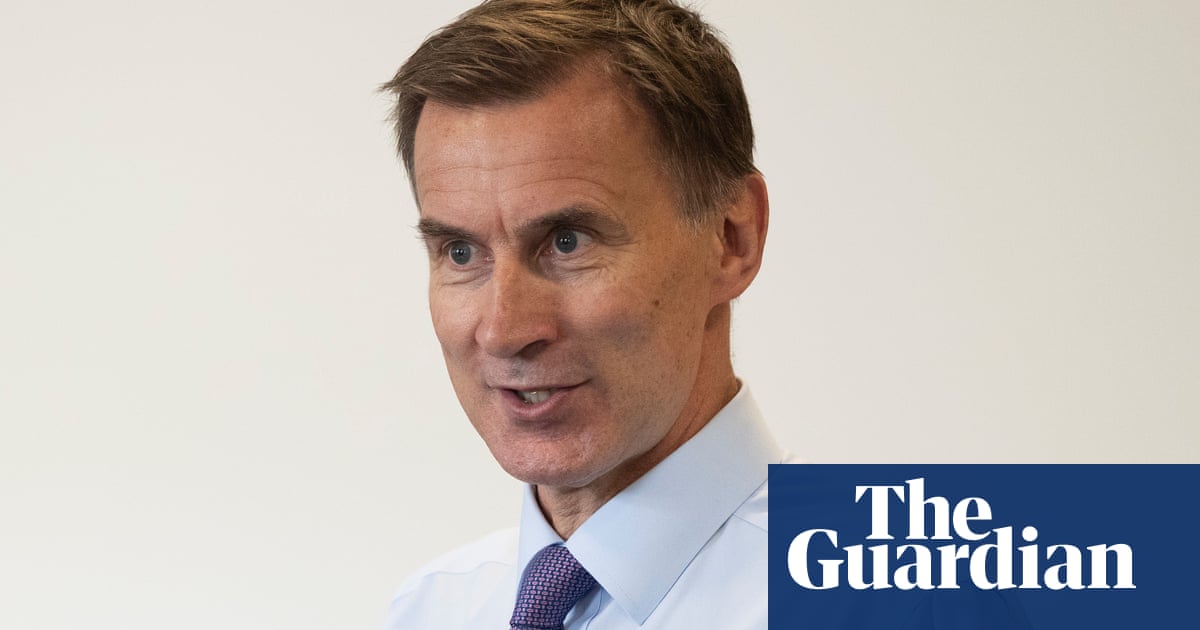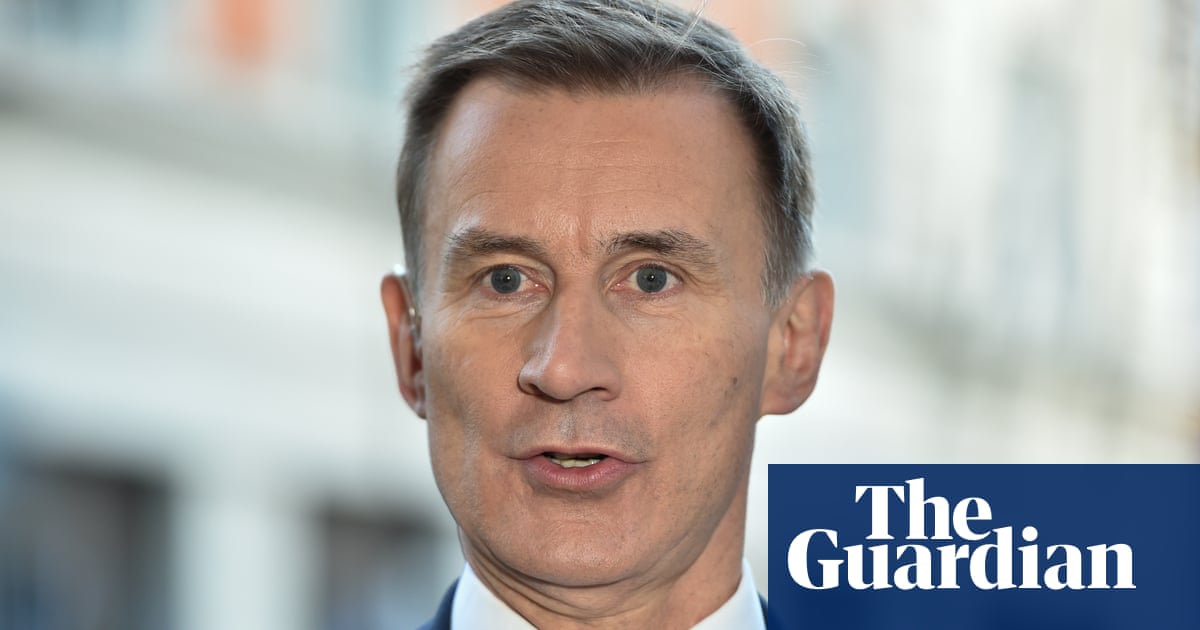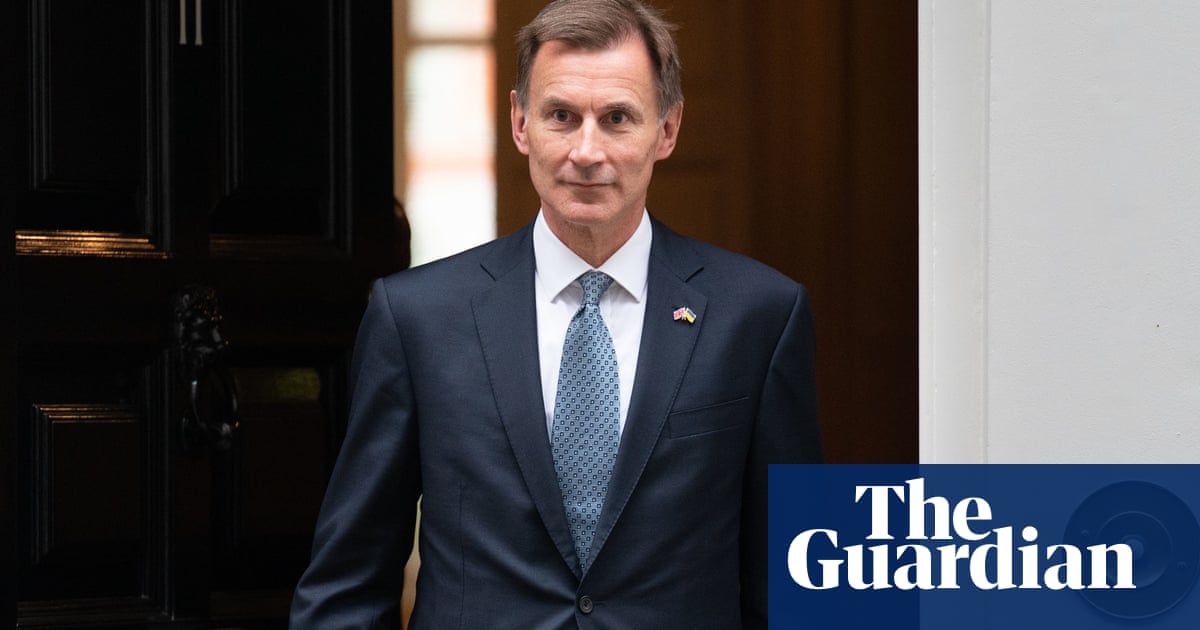
Jeremy Hunt has signalled tax cuts will only come “when the time is right” and be matched by “spending restraint”, as he sought to temper restive Conservative backbenchers’ expectations ahead of the budget in March.
However, the chancellor said he hoped to inject what he described as much-needed optimism about the country’s future, saying he wanted Britain to “have nothing less than the most competitive tax regime of any major country”.
He initially declined to comment on his own tax affairs, when asked if he had ever had to pay a penalty to HMRC after the Tory chair, Nadhim Zahawi, was reported to have done so.
“I’m not going to talk about my personal tax affairs, but I don’t think there’s anything you’d find interesting to write about,” Hunt told journalists on Friday, adding that people were not “remotely interested in personal tax affairs”.
But he went on to say in an interview shortly after: “For the record I haven’t paid an HMRC fine.”
The confirmation came after a gruelling week for the government, when ministers’ tax affairs have come under increased scrutiny after the investigation launched into Zahawi’s finances.
Zahawi has admitted to making a “careless but not deliberate” error, and not denied suggestions he paid a penalty as part of a roughly £5m settlement for non-payment of capital gains tax due after the sale of shares in YouGov, the polling company he co-founded.
Though the prime minister, Rishi Sunak, has permitted the former chancellor to continue serving as Conservative chair while his ethics advisers looks into the issue, several MPs have publicly said he should stand down.
Hunt faced embarrassment when he was health secretary in the coalition government after it emerged the Hotcourses firm he co-founded breached company law and was restructured resulting in a tax saving of about £100,000, and so sought to draw attention back to the government’s pledge to boost the economy on Friday.
In a speech at Bloomberg, the chancellor targeted economic inactivity and urged those who retired early after the Covid pandemic, or struggled to find a new job after the furlough scheme ended, to rejoin the workforce.
“We need you, and we will look at the conditions necessary to make it worth your while,” the chancellor said.
Hunt blamed Britain’s woes on “economic headwinds” that affected many countries, citing favourable growth statistics, and inflation remaining higher in 14 European Union countries. “Declinism about Britain is just wrong,” he said.
However, after pressure from Tory MPs – including the Conservative Growth Group founded by allies of Liz Truss – Hunt stressed that investment would only follow financial stability, and gave little hope that his March budget would reduce the tax burden.
“Confidence in the future starts with honesty about the present,” he said.
Hunt said “we need lower taxes” and that high rates “affect the incentives” of businesses to invest, but stressed that “sound money must come first”.
“Our ambition should be to have nothing less than the most competitive tax regime of every major country,” he said, but that would mean “restraint on spending”.
The creation of “mini-Canary Wharfs” – how Hunt dubbed the plan to reinvent Truss’s low-regulation, low-tax “investment zones” – was promised, with details about where they would be located to be announced “shortly”.
Hunt took aim at Labour, citing Keir Starmer’s pledge not to reopen the big government chequebook. The chancellor claimed the party had since made tens of billions of unfunded spending commitments.
After a cabinet away-day at Chequers, where ministers discussed gloomy polling, Hunt signalled his ambitions would not be realised immediately – paving the way for further announcements in the run-up to the next election about ways to boost growth.
“This is a project that is not going to happen in the next 18 months or the time span before the next election,” Hunt said. However, he still tried to provide hope to glum Tory MPs, adding: “Even in really difficult times, we can make incredible progress.”
Labour said Hunt and Sunak had no plan to fix “13 years of Tory economic failure”.
Rachel Reeves, the shadow chancellor, said: “Britain has so much potential. From creating good, new jobs in the industries of the future, to making our country the best place to start and grow a business, Labour’s proper plan for growth will grasp those opportunities and make our economy stronger to face up to the challenges.
“Thirteen years of Tory economic failure have left living standards and growth on the floor, crashed our economy, and driven up mortgages and bills.
“The Tories have no plan for now, and no plan for the future. It’s time for a Labour government that will build a better Britain.”





